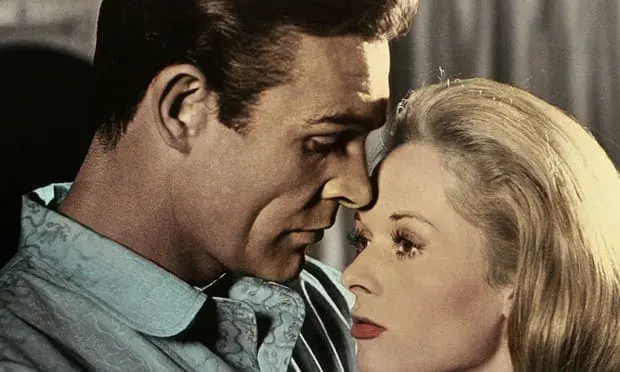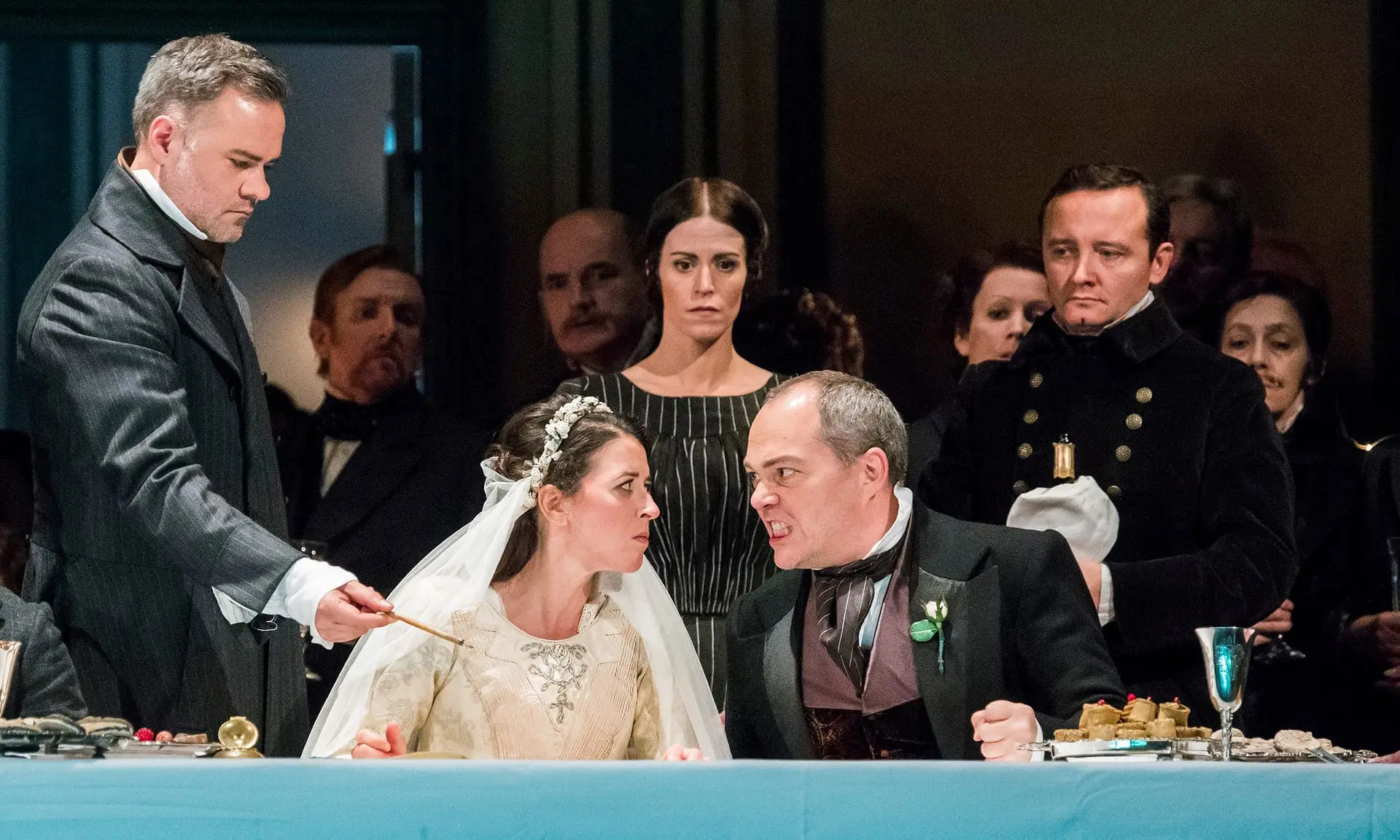Given its world premiere by English National Opera, Nico Muhly’s Marnie is drawn from Winston Graham’s 1961 novel of the same name, famously filmed by Alfred Hitchcock in 1964. The subject, Muhly argues, “screams out for operatic treatment”, and his heroine – a thief and liar acting out of compulsive responses to half-remembered childhood trauma – certainly has antecedents elsewhere. Muhly links her fear of sex and physical contact to Debussy’s Mélisande, who, like Marnie, is also trapped in a marriage with a potentially abusive man. There are also overtones of Emilia Marty in Janácek’s Makropoulos Case, who similarly changes her identity multiple times for the purposes of deception.
Muhly and his librettist Nicholas Wright follow the outlines of the novel rather than the film. Whereas Hitchcock relocated the drama to the US, they retain the original British setting – the grubbily monetarist home counties in the 1950s. We encounter characters that Hitchcock dropped, most crucially, perhaps, Mrs Rutland, the formidably manipulative mother of Marnie’s husband, Mark. Terry, Mark’s cousin in the book, has become his attractively dissolute brother. The operatic Marnie has no phobia of the colour red, and, as in Graham but not in Hitchcock, her mother dies before the truth about the past comes to light.
Related: Sex, sadism, blackmail: Nico Muhly on why Hitchcock’s Marnie is an explosive heroine
Continue reading…
Source: Opera News from the UK Guardian















